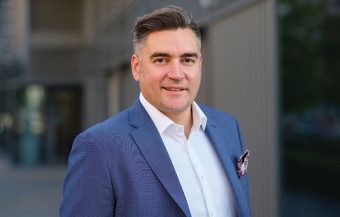
In the world of renewable energy, the solar industry is undergoing dynamic changes shaping its future development. Intense competition among panel manufacturers, rising investor expectations, and technological innovations raise numerous questions about market sustainability and the prospects for solar power plants. We spoke with Nino Sijerić, a business development expert at Luxor Solar GmbH, a company known for its high-quality photovoltaic modules, about the challenges and trends in the industry, key criteria for panel selection, and the importance of trust in relationships between investors, EPC companies, and manufacturers.
The solar panel market is going through a turbulent period—fierce competition among manufacturers has led to price drops and reduced profitability. How will this trend impact European manufacturers in the coming years?
“This trend will lead to market consolidation. Some companies will exit the market, while others will change ownership. Investors will become more cautious when selecting partners and will work only with proven companies. The current situation in the solar power market creates a lot of uncertainty in decision-making. Today, investors do not only choose modules and contractors; the reputation of the company behind the product is equally important. If price becomes the main decision factor, investors will face long-term issues—’pay a little now, pay a lot later.'”
What characteristics must a company have to survive in such a challenging period?
“Flexibility is the key word. Quick responses and adaptability to market changes will be crucial. I call this ‘photovoltaic Darwinism’—it’s not the biggest or strongest that will survive but the one that adapts the fastest to market needs. Speed in decision-making and innovation will be of essential importance. For example, products tailored to the specific needs of clients will help them choose the optimal solution more easily.”
The market now offers numerous models of solar panels with varying prices and quality. How would you advise buyers to make the best choice?
“When choosing solar panels, buyers should consider several key factors to ensure maximum return on investment and long-term benefits: Price – It’s important to find a balance between price, efficiency, and warranties. The cheapest panels aren’t always the best solution. Quality – Opting for reputable manufacturers often means better after-sales support and assurance of panel longevity. Efficiency – A higher efficiency level means fewer panels are needed to generate the same amount of energy. Warranty – Most panels come with a 25-year energy production warranty, and some offer longer warranties on the product itself. Buyers should definitely consult experts and installers to assess their energy needs and select the best product. In the long run, quality will always outweigh low cost.”
IN FOCUS:
- One Man – Many Recycled Bottles
- Green Mobility Is A Key Part Of The European Green Deal
- Green Projects – TENT A Gets A Solar Power Plant
How important is it for buyers to know which company stands behind their modules?
“Knowing the manufacturer of solar panels is crucial for making informed decisions and ensuring the long-term value of an investment. The quality and reliability of panels are intrinsically linked to the reputation of the manufacturer, as it reflects the performance and durability of the product. Warranties play a critical role in investment security – it’s especially important to know whether they are tied to a company based in the European Union or China.
Reputable manufacturers often provide top-tier support for maintenance and servicing throughout the panel’s lifecycle, significantly enhancing their longevity. Additionally, ethical principles and sustainability practices are increasingly important factors in the selection process, as today’s buyers value companies operating in alignment with sustainable practices.
The financial stability of the manufacturer is also crucial. Companies with a long-standing market presence and consistent ownership structures provide added security and trust. All this information allows buyers to choose panels that deliver optimal performance and lasting value for their investment.”
Last year, solar energy was the leading form of renewable energy in terms of new installations. Will changes in the solar panel market affect its further development?
“Solar power plants will remain a key energy source and an essential part of countries’ renewable energy supply. However, in the future, we will face challenges such as grid balancing. Some countries are already producing up to 60 percent of their energy from solar sources during the summer, which sometimes creates a surplus the grid cannot absorb. The solution will be energy storage in batteries, which would allow the use of surplus energy when the sun is not shining and ease the burden on the grid system.
Once batteries achieve technological maturity and a lifespan of 20 or more years, the solar revolution will truly take off—every household or factory will be able to achieve energy independence.”
How can mutual trust be ensured between investors, EPC companies, and solar panel manufacturers?
“Trust is built on experience and proven results. The more satisfied users of solar power plants there are, the greater the trust in the technology and contractors. Panel manufacturers gain trust through their performance. For example, at the same location and with identical inverter systems, an investor using Chinese TIER 1 modules had 20 percent lower energy production than one who used Luxor modules. When that percentage is multiplied over 20 years, it becomes clear why trust in quality is crucial—not only in terms of the panels but also in terms of contractor recommendations.”
Interviewed by: Milena Maglovski
The interview was published in the new issue of the Energy portal Magazine RESPONSIBLE BUSINESS
